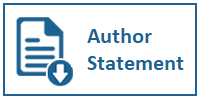KINERJA INDIVIDU KEMAMPUAN TEKNIK PERSONAL DAN KINERJA KARYAWAN: EFEKTIVITAS SISTEM INFORMASI AKUNTANSI SEBAGAI VARIABEL INTERVENING
DOI:
https://doi.org/10.31937/akuntansi.v14i1.2640Abstract
Abstract” The purpose of this study is to find out the influence between Individual Performance and Personal Engineering Capabilities on Employee Performance with the Effectiveness of Accounting Information System as Intervening Variable in BPKAD Blitar Regency. Accounting information system can be said to be effective depending on how well the user is able to use the application and know well what is contained in the system, therefore it takes individual performance and good personal engineering skills from employees. Individual performance and personal engineering capabilities are expected to encourage the performance of BPKAD employees in Blitar Regency through the effectiveness of accounting information system in carrying out the work that the organization charges them. The population in this study was 45 employees and a sample of 30 employees as respondents determined using purposive sampling method. The data collection in this study used questionnaires. The data was analyzed using Partial Least Square (PLS) assisted by the Smart PLS 3.0 application. The results of this study showed that individual performance and personal engineering capabilities had no effect on the effectiveness of BPKAD accounting information system in Blitar Regency. Individual performance has no effect on the performance of BPKAD employees in Blitar Regency. The ability of personal techniques and the effectiveness of accounting information systems affects the performance of BPKAD employees in Blitar Regency, it can be interpreted that the higher the ability of personal techniques and the effectiveness of information systems will improve the performance of BPKAD employees in Blitar Regency at work.
Keywords: Individual Performance; Personal Engineering Capabilities; Employee Performance; Effectiveness of Accounting Information System
Downloads
Downloads
Published
How to Cite
Issue
Section
License
Authors retain copyright and grant the journal right of first publication with the work simultaneously licensed under a Creative Commons Attribution-ShareAlike International License (CC-BY-SA 4.0) that allows others to share the work with an acknowledgement of the work's authorship and initial publication in this journal.
Authors are able to enter into separate, additional contractual arrangements for the non-exclusive distribution of the journal's published version of the work (e.g., post it to an institutional repository or publish it in a book), with an acknowledgement of its initial publication in this journal.
















